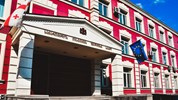What issues were discussed by the Supreme Council of Justice in February
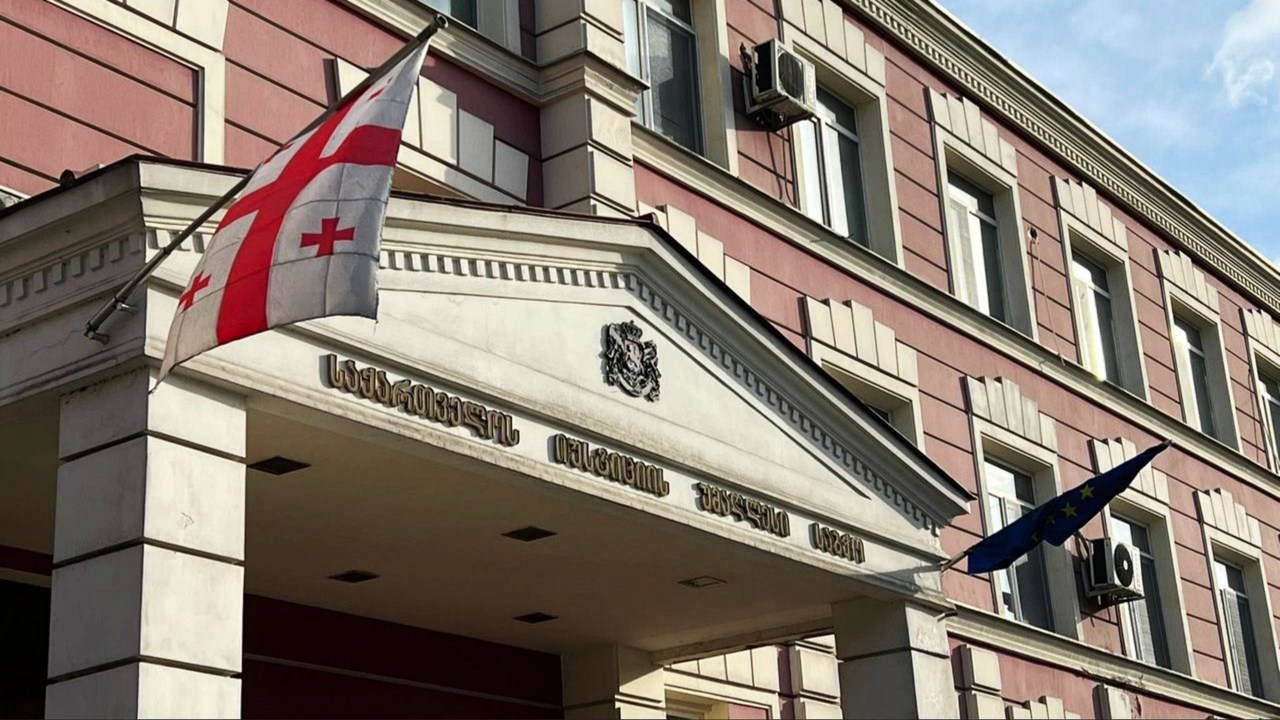
During February, the session of the Supreme Council of Justice was scheduled 9 times: From here it was held only - 3 times (sessions started up to 1 hour late); postponed - 6 times.
The main findings:
- The Supreme Council of Justice of Georgia made all decisions unanimously, there were no dissenting opinions/questions;
- The Supreme Council of Justice did not publish information on the postponement of the session on the website in advance, within a reasonable time;
- Information on the appointment of all sessions was published in violation of the organic law - only 1 working day before, instead of at least 3 working days.
On the first of February, the agenda was published on the same day.
February 1, 2023
Initially, the session was scheduled for January 26, but after being postponed twice, it was finally held on February 1 after an hour's delay. A total of 38 minutes were devoted to discussion of issues at the session. Chairman of the Supreme Council of Justice and Supreme Court, Nino Kadagidze, and Supreme Court judge Ketevan Tsintsadze did not attend the session.
The agenda:
1. Draft Decree - "On Approving the Rules of Internship and Training Practice in the Supreme Council of Justice of Georgia and General Courts" on amending Decision 1/251 of the Supreme Council of Justice of Georgia of September 18, 2017";
2. Draft decree - "On the approval of the structure of the apparatuses of Tbilisi and Kutaisi appeal courts, district (city) courts, the staff list and officials’ remuneration" on making changes to the 1/3 decree of the Supreme Council of Justice of Georgia of January 16, 2023;
3. About making changes in some normative acts;
4. On the determination of the composition of chambers/colleges in some district (city)/appeal courts;
5. Organizational issues.
The main issues/decisions discussed at the meeting:
- The first item included in the agenda was postponed, since, according to the opinion of the council members, additional discussion was necessary;
- The second issue was about the creation of an analytical service in the Kutaisi Court of Appeal, which was unanimously supported by the members present (8). Accordingly, an analytical service was created in the Kutaisi Court of Appeal, which should be evaluated positively;
- The third issue was postponed, the reason for the postponement was not given;
- The fourth issue was postponed, the reason for the postponement was not given;
- The fifth issue was related to the letter from the director of the High School of Justice, according to which the High School of Justice will hold an outdoor workshop for judges on February 11-12 with the support of the USAID Economic Management Program regarding the process of enforcement of the Law of Georgia on Entrepreneurs, the purpose of the meeting is to work out the specific issues that are typical for disputes arising from purchases. According to the letter, the High School of Justice requested the High Council of Justice to provide a list of 17 judges (who hear corporate disputes) to participate in the away meeting.
The position of the members of the Supreme Council of Justice
Levan Murusidze's opinion
"My position is that there seems to be a lack of coordination with this issue, in general, planning events when it happens, it is clear that there is no coordination with either the [Higher] School of Justice or the High Council of Justice, especially when such issues are being discussed that I consider personally, that there is no important information and experience for the judges, and it would be good if we asked the organization, if they have not already financed the mentioned event [...] to [carry out] more coordination with the judges, we will offer the topics that are interesting and important for the court and accordingly organize it in a better way. Do not continue in practice as it is. Who determines the urgency of these issues? [...]Judges don't directly talk about it, but we know that it turns out to be very uninteresting and fruitless, so maybe we should ask the [High School of Justice] that if it is planned now and it cannot be postponed, that is another topic. But we would like to ask if it is possible to postpone the mentioned event and organize it better [...].
When I was a judge of the Supreme Court, there were meetings of the judges of all three courts of instance and the establishment of a united judicial practice, the judges discussed important issues [...] it was actually productive.
My proposal would be that the Supreme Council of Justice should bring forward the mentioned issues again, so that the judges are given the opportunity to meet each other, share their opinions and talk about the topics that are of interest to the court, and not about those that are not of any interest or field.In this regard, I have no hope, I don't know that issues that are really of interest to the court are not financed [...], so we can find funds from our own budget to organize such meetings and when the judges of all three instances agree, we will also publish a book on unified judicial practice [ ...]
[...] Let's ask if we can intervene and provide the donors with the information that the court needs.
[...] I know many judges who do not say, but I know that for them a seminar was held for the seminar and, and without any results and then it will be written that we have spent money to bring such and such an expert to the judges [...] who is engaged in [business] by the organization, in fact, it does not bring anything to the court, and something useful should be done so that there is no more place for this.
If it is possible for donors to have more active contact with the Council and the High School of Justice, the issues like who should be an expert, composition, who should participate, which judge should be decided in coordination with the Council and not so that someone decides [...]. Then they will say that so much and so much is being spent, we are helping the judiciary and it does not help us in anything, it does not help us."
Nikoloz Marsagishvili's opinion
"It is not interesting for the judge [...] I just didn't understand that 17 judges should meet and ask them, when the party is a body, what kind of judicial practice you have, this is not a meeting for the development of judges, it is a meeting for the sake of meeting [...]"
Tamar Gvamichava's opinion
"Numerous interesting trainings were organized by the [Higher Justice] School, including various topics chosen by the judges themselves. Discussed here [...] I personally had to attend these issues, and the result and goal was revealed in the end, that such type of meetings turned out to be quite effective and there was a great interest from the part of the judges, they also had such a request that a similar one might be provided for the assistants in the future.”
Other members of the Supreme Council of Justice also agreed with the stated position.
February 7, 2023
Initially, the session was scheduled for February 3, however (after 2 postponements) it was held on February 7, the session lasted about 4 hours.
Agenda:
1. LEPL - letters of the chairman of the Department of General Courts;
2. Letters of the judges of Telavi District Court;
3. Voting for the judges' selection competition;
4. On determining the composition of chambers/colleges in some district (city)/appeal courts;
5. Organizational issues.
The main issues/decisions discussed at the meeting:
- The letter of the chairman of the department was about the funds needed for the overhaul works of the court;
- The letter from the Telavi District Court was about increasing the amount of rent for the apartment allocated to the judge;
- As a result of the voting of the selection competition for judges, the Supreme Council of Justice, unanimously appointed 8 judges (7 of them are incumbent judges. 1 - former assistant judge):
1. Tamar Chuniashvili - was appointed to the Civil Affairs Chamber of the Tbilisi Court of Appeal;
2. Zaza Ramishvili - was appointed to the Civil Affairs Chamber of the Court of Appeal of Kutaisi;
3. Tariel Tabatadze - was appointed to the Civil Affairs Board of the Tbilisi City Court;
4. Giorgi Lobzhanidze - was appointed a magistrate judge of Batumi city court in Kobuleti municipality;
5. Nana Chalatashvili - appointed to Gurjaani district court;
6. Nata Tedeshvili - was appointed to the Civil Affairs Board of the Rustavi City Court;
7. Kristine Kopaliani - was appointed to the criminal justice panel of the Rustavi City Court;
8. Ia Labadze - was appointed to the administrative affairs panel of the Mtskheta District Court.
- The fourth issue was removed from the agenda;
- Fifth issue was removed from the agenda.
February 14, 2023
Initially, the session was scheduled for February 13, but it was postponed and held on February 14. 25 minutes were allocated to the session. Chairman of the Supreme Council of Justice and Supreme Court, Nino Kadagidze, and Supreme Court judge Ketevan Tsintsadze did not attend the session.
The agenda:
1. Draft Decree - "On Approving the Rules of Internship and Training Practice in the Supreme Council of Justice of Georgia and General Courts" on amending Decision 1/251 of the Supreme Council of Justice of Georgia of September 18, 2017";
2. About making changes in some normative acts;
3. On the determination of the composition of chambers/colleges in some district (city)/appeal courts;
4. Organizational issues.
The main issues/decisions discussed at the meeting:
- The first issue was about the draft of the decree, the members of the Council heard the content of the draft of the decree;
- The second issue was removed from the agenda;
- The third issue was removed from the agenda;
- The fourth item was removed from the agenda.
- On the same day, the newly appointed judge of the Supreme Council of Justice of Georgia, Kristine Kopaliani, took the oath. Kristine Kopaliani was appointed to the criminal justice panel of the Rustavi City Court. Members of the Supreme Council of Justice attended the swearing-in ceremony.
---
The materials distributed by courtwatch.ge and published on the website are the property of "Georgian Court Watch", when using them, "Georgian Court Watch" should be indicated as the source.
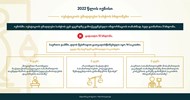
What issues did the Supreme Council of Justice discuss during the month of June
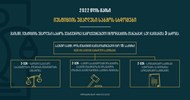
What issues did the Supreme Council of Justice discuss during the month of May
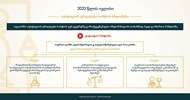
What issues did the Supreme Council of Justice discuss during the month of July
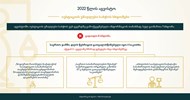
What issues did the Supreme Council of Justice discuss during the month of August?

What issues did the High Council of Justice discuss last month

What issues did the High Council of Justice discuss in January

Disclosure of the agenda of the meeting by the High Council of justice as a minimum standard of transparency
